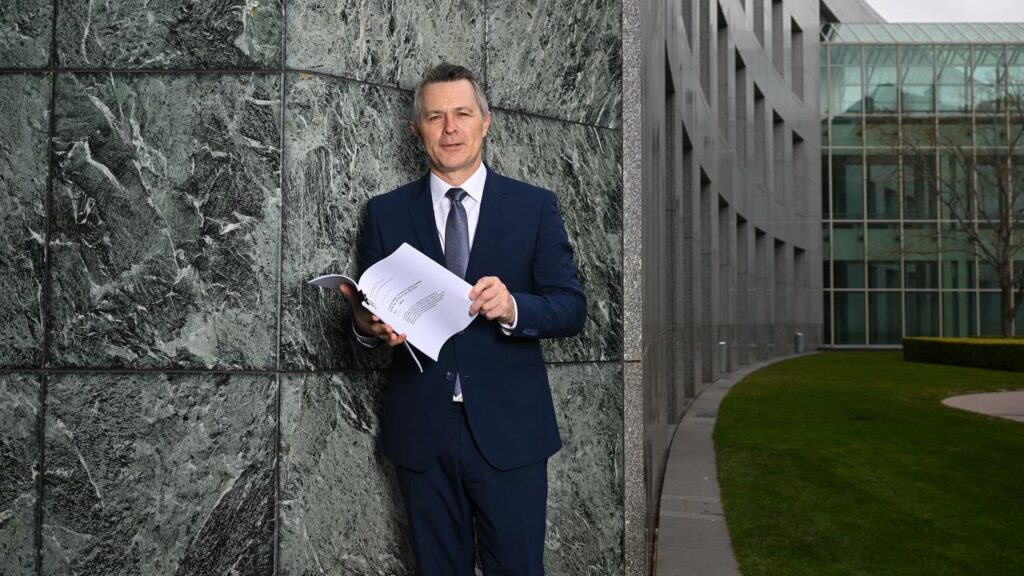HECS debt relief nears as Labor eyes further uni reform
Dominic Giannini and Jacob Shteyman |

Students and graduates will soon receive a cut to higher education debts but advocates say the government must do more to make university fees fairer.
Legislation was introduced to parliament on Wednesday to slash HECS debts by 20 per cent and increase income thresholds before minimum repayments kick in.
It is expected to be passed with the support of the opposition in the coming weeks.
Prime Minister Anthony Albanese credited the bill as a key reason behind Labor’s victory in the May election.
“Because it resonated with those young Australians in particular, who are looking for intergenerational equity measures, which is what this is, saving some three million Australians an average of $5500 each,” he said during question time.
Federal Education Minister Jason Clare said the policy will make the system fairer.
“It means you start paying off your uni degree when uni starts to pay off for you,” he said while introducing the bill to the House of Representatives earlier on Wednesday.
People earning between $60,000 and $180,000 will save hundreds of dollars each year under the changes.
Someone on $70,000 will save the most on minimum repayments – $1300 a year – due to an increase to the thresholds for when the debts must be paid.

The bill is set to sail through both houses of parliament, with Opposition Leader Sussan Ley telling Sky News: “We will be constructive where we can.”
Bruce Chapman, the architect of the HECS scheme, said the relief would make the system fairer by giving those on lower salaries more money in their pockets.
But the top priority should be reviewing the price of each degree because humanities students finish with the highest level of debt and end up being the lowest-paid graduates.
“All the prices are wrong,” Professor Chapman told AAP.

Mr Clare said further reforms were being looked at after the failure of the former Liberal government’s job-ready program.
The program aimed to fill skills shortages by making it cheaper to take courses such as teaching, nursing and psychology, while doubling the cost of popular degrees including law, communications, business, humanities and the arts.
“If the intention there was to reduce the number of people doing arts degrees, it hasn’t worked,” Mr Clare said.
“People study the courses they’re interested in, that they want to do, that they love.”

The universities’ accord final report branded the program “deeply unfair” because it punished students who followed their interests.
It recommended that fees reflect future earning potential as part of 47 recommendations to reform the sector.
The universities sector welcomed the HECS bill but called on the government to repeal the jobs-ready graduates scheme.
“Scrapping the job-ready graduates package to make student fees fairer and expanding the Commonwealth prac payment could help shift the dial on participation, which is what the country needs,” Universities Australia chief executive Luke Sheehy said.
Other aspects about how HECS debts were paid off also needed to be addressed, Prof Chapman said.
HECS repayments are taken from a person’s pay if they earn above an income threshold.
But the money isn’t immediately taken off the total debt and is instead deducted as a lump sum at the end of the financial year after indexation has been applied.
The university accord recommended the arrangement be changed to make the system fairer.
The Australian Tertiary Education Commission has been established in an interim capacity to implement long-term university reform and will review the HECS system over the next 12 months.
Mr Clare will introduce further legislation to make the commission a permanent body.
AAP